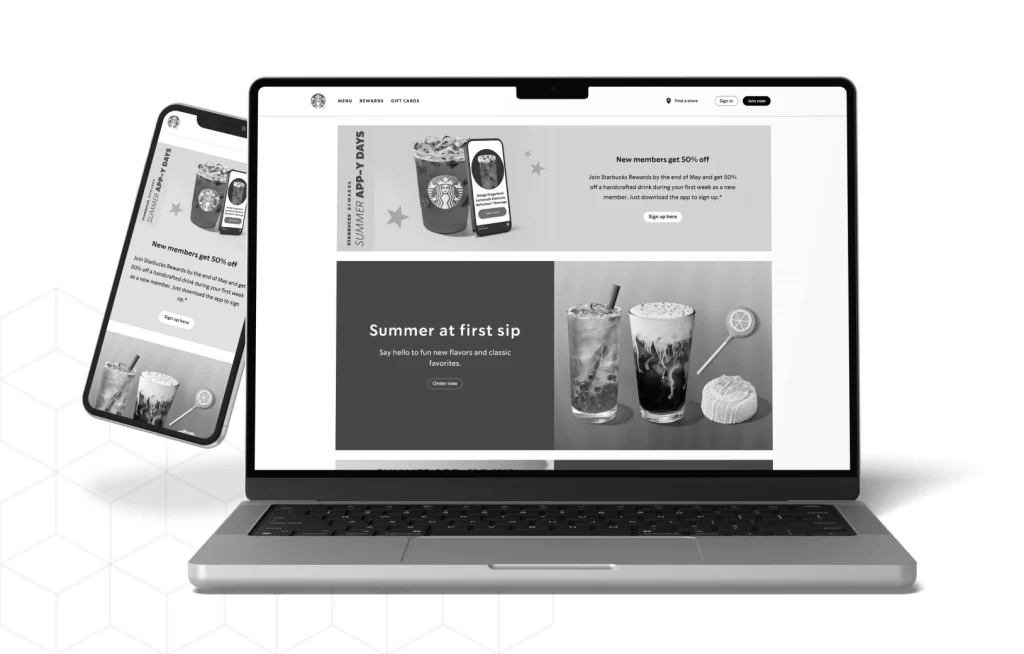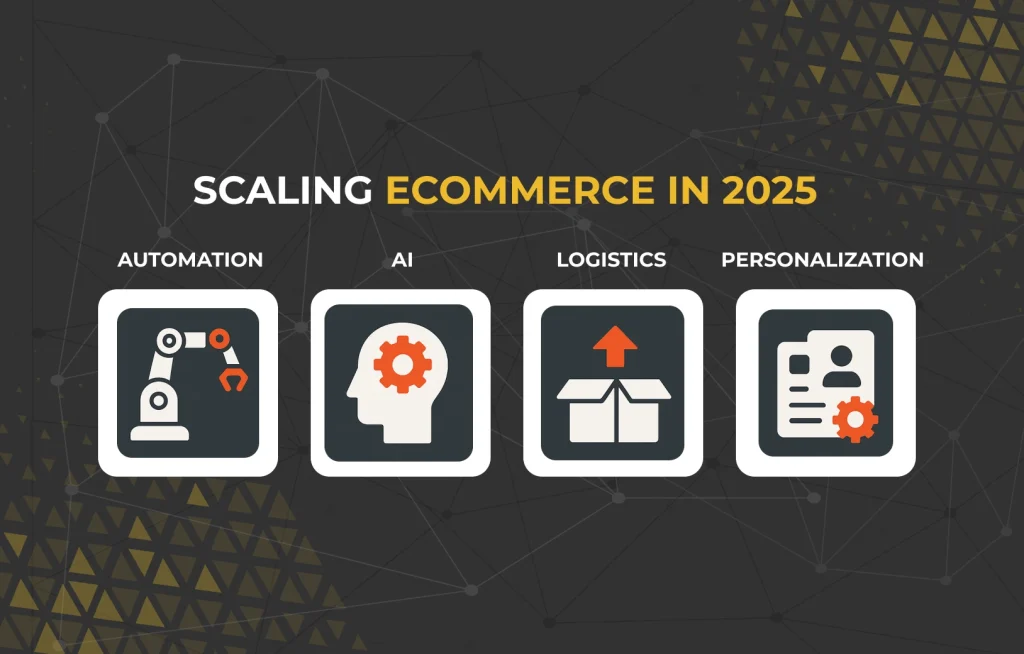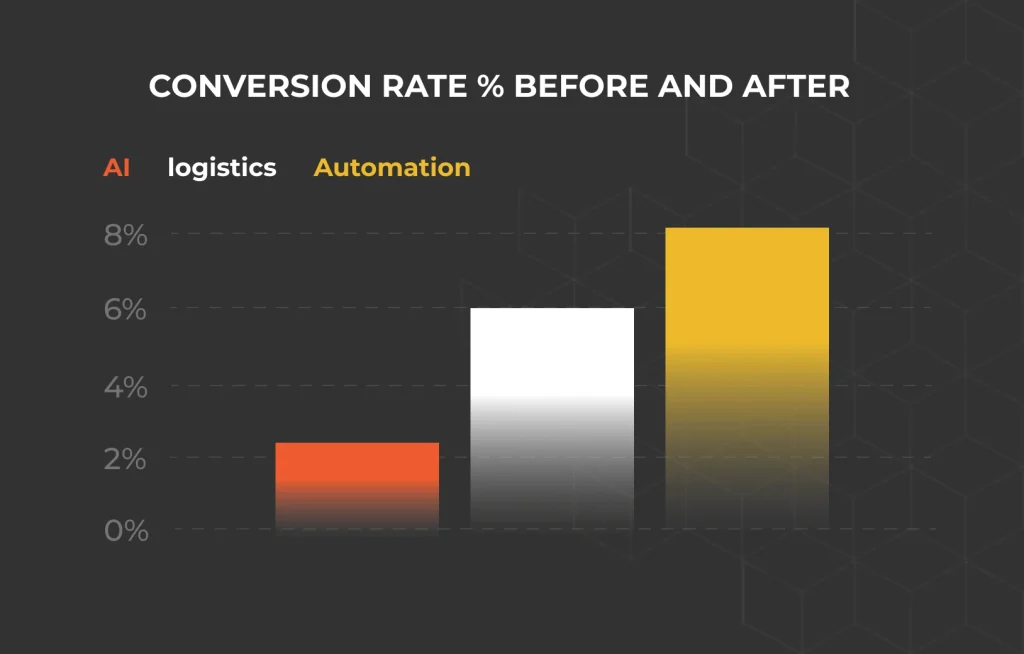Key Takeaways
- Headless commerce, AI-driven automation, and cloud-based infrastructure are essential for future-proofing your eCommerce platform.
- Optimize for Omnichannel Commerce – A seamless customer experience across web, mobile, social, and in-store is critical for enterprise growth.
- AI-powered personalization, predictive analytics, and chatbots enhance customer engagement and increase conversions.
- Performance Max campaigns, hyper-segmentation, and interactive content drive higher ROI and customer retention.
- Scaling enterprise eCommerce requires a strategic approach. Experts like Fahrenheit Marketing can accelerate growth and innovation.
Scaling an enterprise eCommerce business in 2025 is no longer just about increasing traffic and sales—it’s about optimizing every aspect of your online presence to remain competitive in a rapidly evolving digital world.
From AI-powered personalization to advanced omnichannel strategies, enterprise retailers must stay ahead of trends to sustain growth.
We’ve put together this guide to help you implement the essential strategies for scaling your e-commerce business effectively in 2025.
Why Scaling Enterprise Ecommerce Matters in 2025
Global eCommerce sales are projected to reach $7.4 trillion by 2025, with enterprise retailers facing increased competition, rising customer acquisition costs, and evolving consumer expectations.
Brands that fail to scale efficiently risk losing market share to more agile competitors that leverage automation, AI, and omnichannel experiences.

1. Build a Future-Ready Tech Stack
A scalable eCommerce business relies on a powerful, flexible, and integrated tech ecosystem. In 2025, the key components of an enterprise-grade tech stack include:
- Headless Commerce: Decouple your front end from your back end for greater flexibility, speed, and customization.
- AI-Driven Automation: Use AI-powered tools for predictive analytics, personalized recommendations, and customer service automation.
- Cloud-Based Infrastructure: Ensure seamless scalability and security with AWS, Google Cloud, or Azure platforms.
- Composable Commerce Solutions: Adopt a modular approach to integrate best-of-breed tools without being locked into a monolithic system.
2. Optimize for Omnichannel Commerce
Modern consumers expect a seamless shopping experience across multiple channels. An effective omnichannel strategy should include:
- Unified Customer Data: Integrate data from web, mobile, social, and in-store purchases to create a single customer view.
- Consistent Brand Experience: Ensure branding, messaging, and promotions remain consistent across all platforms.
- Cross-Channel Fulfillment: Leverage BOPIS (Buy Online, Pick Up In-Store), same-day delivery, and real-time inventory management to meet customer expectations.
3. Use AI for Personalized, Data-Driven Experiences

AI isn’t the future—it’s the now. The brands that personalize at scale will win:
- Dynamic Pricing Models: Adjust pricing in real-time based on demand, competitor pricing, and user behavior.
- Predictive Product Recommendations: Deliver hyper-personalized shopping experiences based on browsing and purchase history.
- AI-Powered Chatbots and Virtual Assistants: Enhance customer service by providing instant, intelligent responses to inquiries.
4. Scale Your Marketing Through Smarter Strategies
As competition intensifies, a data-driven marketing approach is essential for scalability. In 2025, focus on:
- Performance Max Campaigns: Automate and optimize Google Ads across all channels for maximum ROI.
- Hyper-Segmentation: Use AI to analyze customer data and create highly targeted campaigns.
- Interactive Content: Engage customers with shoppable videos, AR try-ons, and gamification to boost conversions.
5. Strengthen Your Supply Chain and Fulfillment Operations
Efficient logistics and fulfillment are critical to scaling an eCommerce enterprise. Key strategies include:
- Distributed Warehousing: Reduce shipping costs and delivery times by leveraging micro-fulfillment centers.
- AI-Powered Demand Forecasting: Use machine learning to predict inventory needs and prevent stockouts.
- Third-Party Logistics (3PL) Partnerships: Work with leading 3PL providers to scale efficiently and manage peak-season demand.
6. Prioritize Security and Compliance
Enterprise eCommerce businesses must prioritize cybersecurity and regulatory compliance to build trust and mitigate risks. Best practices include:
- Zero-Trust Security Model: Implement strict authentication protocols to protect customer data.
- Compliance with Global Regulations: Ensure adherence to GDPR, CCPA, and evolving data privacy laws.
- Fraud Detection and Prevention: Leverage AI-powered fraud detection tools to prevent chargebacks and account takeovers.

7. Focus on Customer Retention and Loyalty
Customer acquisition costs are rising, making retention more critical than ever. Strategies to enhance customer loyalty include:
- Subscription-Based Models: Offer exclusive perks and discounts for repeat customers.
- Loyalty Programs: Reward repeat purchases with points, early access, and personalized discounts.
- Proactive Customer Support: Implement AI-driven support solutions and self-service options to improve customer satisfaction.
Why Austin is a Hub for Enterprise eCommerce Growth
Austin’s explosive tech growth and business-friendly ecosystem make it a powerful launchpad for enterprise eCommerce brands. The region offers:
- A deep talent pool across software engineering, AI, and logistics.
- Lower operating costs than coastal tech hubs like SF or NYC.
- An innovation-friendly mindset supported by incubators, VCs, and top-tier universities.
At Fahrenheit Marketing, our Austin roots give us a front-row seat to the future of enterprise eCommerce. We’ve helped enterprise clients—from DTC disruptors to B2B giants—modernize their digital experiences and build scalable infrastructures.
What Will Enterprise eCommerce Look Like in 2030?
Looking ahead, we believe that by 2030:
- AI will drive 90% of customer interactions, from product discovery to service.
- Social shopping will become the primary channel for product discovery, especially through platforms like TikTok Shop and YouTube Live.
- Composable, API-first commerce will replace monolithic platforms, enabling faster adaptation to trends.
- Sustainability and ethical sourcing will become table stakes, not differentiators.
We’re already integrating AI-driven merchandising, real-time social commerce tools, and dynamic storefront engines to prepare our clients for the next frontier.

Take Your Enterprise eCommerce to the Next Level
At Fahrenheit Marketing, we specialize in helping enterprise eCommerce businesses scale with innovative digital strategies, cutting-edge technology, and seamless customer experiences.
We can guide you through the challenges of growth and expansion, ensuring that your eCommerce business remains competitive in 2025 and beyond.
Ready to scale your enterprise eCommerce business?
Let’s future-proof your enterprise eCommerce strategy — schedule your complimentary consultation with our experts today.
